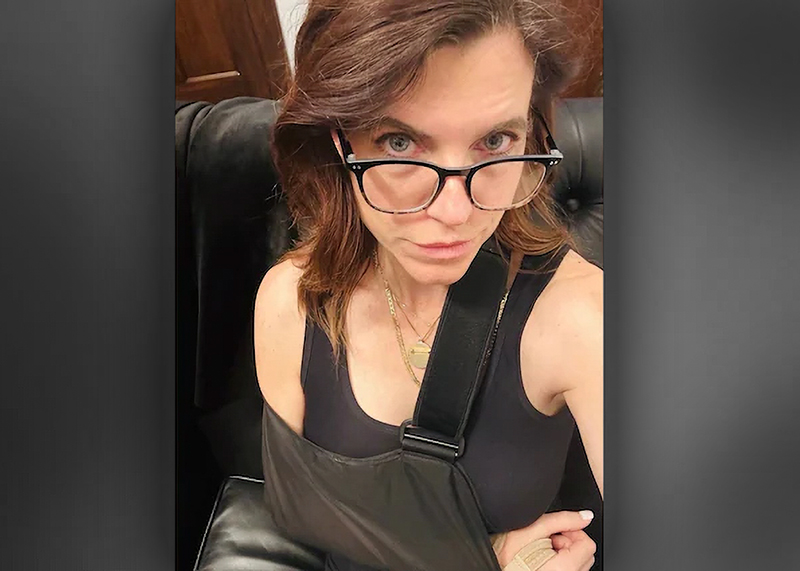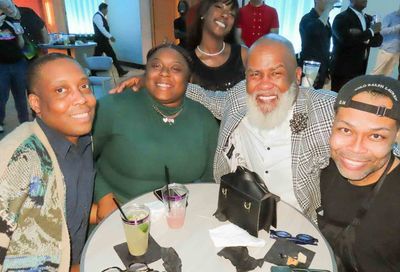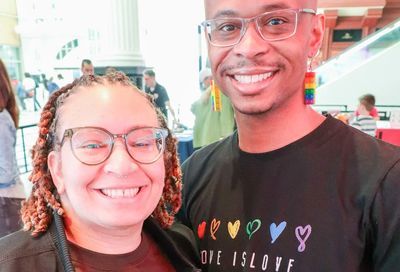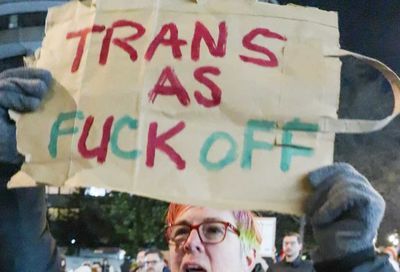Trump administration allows foster care agency to discriminate against gay couples
Miracle Hill Ministries' argues their religious beliefs should permit them to discriminate against prospective parents

The Trump administration has granted a waiver to a South Carolina child placement agency that wants to discriminate against gay people.
Miracle Hill Ministries of Greenville, S.C., one of the state’s largest foster care agencies, has long practiced a tradition of not placing children with foster parents who do not share its Protestant religious beliefs, including Catholics, Jewish people, non-practicing or atheist parents, and same-sex couples.
But Miracle Hill’s practices were found to be in violation of a regulation, put in place by the Department of Health and Human Services under the Obama administration, that bars agencies that receive taxpayer money from discriminating on the basis of religion.
As a result, the South Carolina Department of Social Services learned of Miracle Hill’s policy and downgraded their regular license to a provisional license.
Gov. Henry McMaster (R), one of Miracle Hill’s biggest defenders, issued an executive order in March that directed the state Department of Social Services not to punish child placement agencies that discriminate based on religious beliefs.
He then requested an official waiver from HHS that would allow Miracle Hill to continue operating under a full license.
According to The Washington Post, HHS justified its decision to grant the waiver, arguing that the Obama-era regulation was wrong-headed, as it forces faith-based providers, like Miracle Hill, to choose between adhering to their beliefs — including that homosexuality is wrong and that married heterosexual Christian parents provide the most ideal homes for raising children — and losing their license.
In a letter to the governor sent Friday, Steve Wagner, an HHS official overseeing the foster care program, wrote that requiring Miracle Hill to accept non-Christians would be a “substantial burden” on its exercise of religion and would violate the Religious Freedom Restoration Act.
“The government should not be in the business of forcing foster-care providers to close their doors because of their faith,” Lynn Johnson, the assistant secretary at HHS’ Administration for Children and Families, said in a statement. “Religious freedom is a fundamental human right.”
Miracle Hill CEO Reid Lehman issued a video message on Facebook in which he praised HHS for granting the exemption, saying that non-Christians and others can always work with other child placement agencies if they desire.
But Miracle Hill reserves the right to be selective about who it approves as foster parents.
“[This decision is] the right answer for us, it’s the right answer for faith-based organizations within our state, and it’s the right answer for South Carolina, because it increases the pool of folks who are available to care for children, and it certainly does not diminish the pool for anyone,” Lehman said in the video.
“In fact, if you’d like to care for a child, South Carolina is 1,000 families short,” he added. And whether you’re Christian or non-Christian, or a person of faith, or whatever, and you care about children, we’d love to help you find a place to plug in, because children need all the help they can get.”
LGBTQ groups, as well as child advocates and religious minorities, condemned the government’s granting of the waiver.
“HHS’ decision to grant South Carolina’s waiver request allows taxpayer-funded discrimination on the backs of South Carolina’s most vulnerable children,” Shelbi Day, the senior policy counsel at Family Equality Council, said in a statement. “Allowing child placing agencies to ignore federal nondiscrimination rules runs counter to the cardinal rule of child welfare: that the best interests of children in care must come first.”
Day also called on Congress to hold oversight hearings on the issue, and to pass the Do No Harm Act to ensure that the Trump administration’s broad interpretation of RFRA laws cannot be used to condone discriminatory practices.
“Let’s call this decision what it is: state-sanctioned and government-funded discrimination,” Christina Wilson Remlin, lead counsel for the child advocacy organization Children’s Rights. “By granting a waiver that allows agencies to accept federal and state dollars while turning away otherwise qualified families and individuals solely on the basis of religious belief, the Trump administration is sending the message that Jewish, LGBTQ, Muslim, and other non-Christian individuals are less deserving of equal protection under the law. We disagree.
“Moreover, South Carolina is already facing a severe shortage of foster homes and inappropriately over uses group homes,” Wilson Remlin added. “Limiting the pool of prospective foster and adoptive parents based on their failure to pass a religious litmus test will deprive children of suitable, loving and stable homes.”

In October, Children’s Rights was one of more than 20 organizations who penned a letter to HHS urging the agency to reject South Carolina’s request for a waiver, saying that it would violate the First Amendment by giving preferential treatment to certain groups based on religion, and would prioritize adults’ personal beliefs over the safety and wellbeing of the more than 4,000 children currently in South Carolina’s foster care system.
“This is yet another example of the Trump administration using religion to advance a regressive political agenda that harms others. And this time, the target is not only religious minorities but also our most vulnerable children — those in need of loving homes,” Rachel Laser, the president and CEO of Americans United for Separation of Church and State, said in a statement.
“While this waiver is specific to South Carolina, it sets a dangerous nationwide precedent that elevates the beliefs of government-funded programs over the best interests of the children in their care,” Laser added.
Rabbi Jonah Dov Pesner, the director of the Religious Action Center of Reform Judaism, also criticized the decision, noting that Miracle Hill had previously gained notoriety for rejecting a Jewish woman and her husband from becoming foster parents.
Sexual orientation and religion have no impact on a person’s ability to love and care for a child. Rather than imposing nonsensical and hurtful restrictions on prospective parents, the government should encourage more people to open their hearts and homes to children in need,” Pesner said. “…As Jews, we know too well that state-backed religious discrimination quickly becomes a stain on the nation. Let us not limit opportunities for vulnerable youth to find safe and supportive homes. We strongly oppose the Department’s decision to grant this religious exemption to South Carolina.”
Editor’s note: An earlier version of this story wrongly attributed a quote by Rachel Laser to Rabbi Jonah Dov Pesner. We apologize for the error.
Support Metro Weekly’s Journalism
These are challenging times for news organizations. And yet it’s crucial we stay active and provide vital resources and information to both our local readers and the world. So won’t you please take a moment and consider supporting Metro Weekly with a membership? For as little as $5 a month, you can help ensure Metro Weekly magazine and MetroWeekly.com remain free, viable resources as we provide the best, most diverse, culturally-resonant LGBTQ coverage in both the D.C. region and around the world. Memberships come with exclusive perks and discounts, your own personal digital delivery of each week’s magazine (and an archive), access to our Member's Lounge when it launches this fall, and exclusive members-only items like Metro Weekly Membership Mugs and Tote Bags! Check out all our membership levels here and please join us today!
























You must be logged in to post a comment.